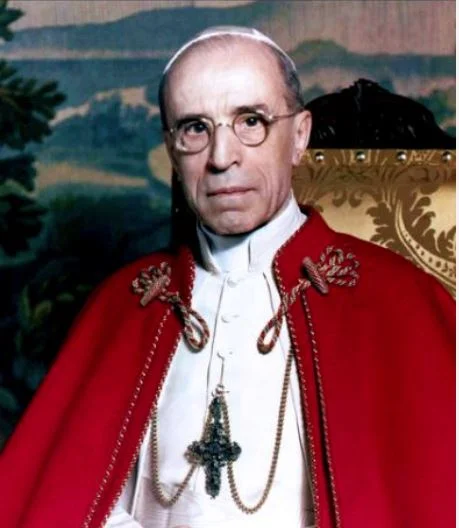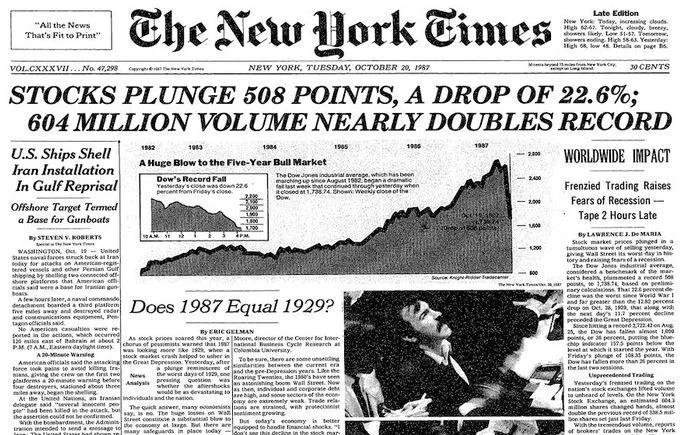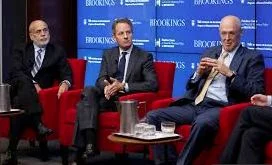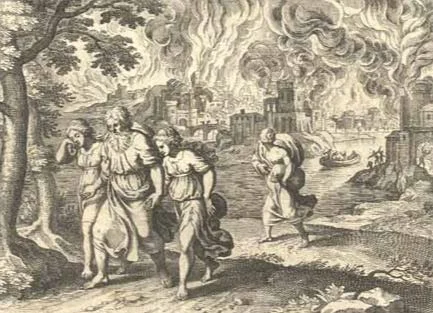This article is a continuation of Part
I.
Fatal Flaw #4: The Active Obedience and Congruous Merit of the Believer
Piper further overrides Christ’s
perfect active obedience—which he affirms—at
the last judgment with the believer’s own “inherent righteousness” or, in Roman
Catholic terms, congruous merit,
where “the individual who did their best could earn their translation into a
state of grace, not on the basis of strict merit which was intrinsically worthy
of grace, but on the basis of congruent merit, whereby God agreed to take their
best as if it were really worthy of grace. Then, once in a state of grace, the
individual could truly begin to perform works which were strictly meritorious.”
Martin Luther and the reformers adamantly rejected this type of merit since
works contribute nothing to justification. Therefore, man
knows that works which he does by such faith are not his but God’s. For this
reason he does not seek to become justified or glorified through them, but
seeks God. His justification by faith in Christ is sufficient to him. Christ is
his wisdom, righteousness, and so on, as 1 Cor. 1:30 has it, that he himself
may be Christ’s action and instrument.
Believers don’t seek to be either justified or
glorified through their works, yet Piper diverges from Scripture on this point
too, as we will see later. By teaching that God is going to evaluate the
believer’s works as “necessary confirmation” for admission to heaven, Piper
renders the imputation of Christ’s obedience utterly worthless to believers at
the last judgment. What good is it to be credited with Christ’s full and
perfect obedience if, in the end, God ultimately judges the believers’ own
works to see if they’re worthy of heaven? Is Christ not enough? Not for Piper,
whose “final salvation” doctrine contradicts the most well-known verse in the
Bible: “For God so loved the world that He gave His only begotten Son, that
whoever believes in Him should not perish but have everlasting life” (John
3:16). Everlasting life—heaven—is attained by belief alone, not by belief and personal holiness present at the last
judgment, as Piper claims. Verse 18 cements this because “he who believes in
Him is not condemned,” not now nor at the last judgment.
Though he allegedly “holds to the
historic, Protestant doctrine of justification by faith alone”
and explains it correctly at times, are Piper’s nuances congruent with
Protestant orthodoxy? That we are justified by faith alone but not finally
saved by faith alone? Far from it, as we’ve already seen. He misleadingly
defends his view as mainstream Protestantism, often without citing support:
So faith alone doesn’t mean the same thing when
applied to justification, sanctification, and final salvation [because “final
salvation” is not by faith alone, according to Piper]. You can see what
extraordinary care and precision is called for in order to be faithful to the
Scripture when using the five solas. And since “Scripture alone” is our
final and decisive authority, being faithful to Scripture is the goal.
We aim to be biblical first — and Reformed only if it follows from Scripture.
Piper is so far removed from historic
Protestantism and Scripture that the Belgic Confession condemns his teaching as
“enormous blasphemy”:
Article 22:
The Righteousness of Faith
We believe that for us to acquire the true
knowledge of this great mystery the Holy Spirit kindles in our hearts a true
faith that embraces Jesus Christ, with all his merits, and makes him its own,
and no longer looks for anything apart from him. For it must necessarily follow
that either all that is required for our salvation is not in Christ or, if all is in him, then he who has Christ by faith has
his salvation entirely. Therefore, to say that Christ is not enough
but that something else is needed as well is a most enormous blasphemy against
God—for it then would follow that Jesus Christ is only half a Savior. And
therefore we justly say with Paul that we are justified "by faith
alone" or by faith "apart from works."
However, we do not mean, properly speaking, that it
is faith itself that justifies us—for faith is only the instrument by which we
embrace Christ, our righteousness. But Jesus Christ is our righteousness in
making available to us all his merits and all the holy works he has done for us
and in our place. And faith is the instrument that keeps us in communion with
him and with all his benefits. When those benefits are made ours they are more
than enough to absolve us of our sins.
If Christ did not accomplish our
salvation entirely, then He is “only half a Savior.” Piper emphatically denies
that “he who has Christ by faith has his salvation entirely,” and therefore can
claim only half a Savior because he teaches that believers are not saved by
faith alone, and that “final salvation” requires “inherent righteousness” and a
“necessary confirmation” of good works for God to allow them into heaven. This
is not the Savior, this is not the salvation, of the Bible; it rather resonates
the error of the legalistic Jews, who, “being ignorant of God's righteousness,
and seeking to establish their own righteousness, have not submitted to the
righteousness of God. For Christ is the end of the law for righteousness to
everyone who believes” (Rom. 10:3-4). Piper affirms both inherent righteousness
and God’s righteousness, but Scripture teaches that these are incompatible,
mutually exclusive categories. To add even a smidgen of self-righteousness is
to insult God and deny His righteousness, because God’s righteousness needs
nothing added to it. Scottish Presbyterian Horatius Bonar likewise refutes
Piper’s view:
What sort of justification does [God] give? Man's
ideas of justification are vague and low; we must recognize God's thoughts upon
the question. His justification is,—
(1)
Righteous. The adjustment of the question
between us and God is a righteous adjustment…. The Just One suffering for the
unjust makes the justification of the unjust a just and righteous thing.
(2) Complete.
It extends to our whole persons; to our whole lives; to every sin committed by
us. The whole man is justified. It is no half-pardon,
no semi-acceptance, that we receive, but something complete and divine; perfect
as God can make it; so perfect as to satisfy conscience here, and to stand the
test of the judgment seat hereafter. Nothing in us or about us that goes to
make up our character as sinners, is left unjustified.
(3) Irreversible.
No second verdict can alter our legal position. God is not a man that He
should lie. Pardoned once, then pardoned forever. "Who is he that
condemneth?" "Who shall lay anything to the charge of God's
elect?"
This,
not Piper’s, is the Protestant doctrine of justification—God’s full, final,
irreversible, perfect verdict, “so perfect as to satisfy conscience here, and
to stand the test of the judgment seat hereafter.” Charles Spurgeon in a
similar vein corrects Piper’s view of final salvation almost directly by first
explaining that, in justification, “Christ takes our sins, we take Christ's
righteousness; and it is by a glorious substitution and interchange of places
that sinners go free and are justified by his grace.” Spurgeon then answers an
objection which sounds much like Piper, that “no one is justified like that,
till he dies,” by asserting, “Believe me, he is”:
“The moment a sinner believes,
And trusts in his crucified God,
His pardon at once he receives;
Salvation in full, through his blood.”
If that young man over there has really
believed in Christ this morning, realizing by a spiritual experience what I
have attempted to describe, he is as much justified in God's sight now as he
will be when he stands before the throne. Not the glorified spirits above
are more acceptable to God than the poor man below, who is once justified by
grace. It is a perfect washing, it is perfect pardon, perfect imputation; we
are fully, freely, and wholly accepted, through Christ our Lord…. Those
who are once justified are justified irreversibly. As soon as a sinner takes
Christ's place, and Christ takes the sinner's place, there is no fear of a
second change.
Even the hymn Spurgeon quotes by Joseph
Hart—“Salvation [Redemption] in full, through his blood”—shows that Protestants
historically did not believe in a “final salvation” falsely dichotomized from
justification.
For a modern corrective to Piper,
Scottish Presbyterian Sinclair Ferguson writes, “Justification is both final and complete. It is final
because it is the eschatological justification of the last day brought forward
into the present day. It is complete because in justification we are counted as
righteous before the Father as Christ himself, since the only righteousness
with which we are righteous is Jesus Christ’s righteousness.”
Piper cannot claim his version of justification to be final or complete, not
until the believer presents his works of obedience at the last judgment and is
declared worthy of heaven. Innumerable other examples could be cited to show
how Piper’s “final salvation” scheme contradicts historic Protestantism in
general and sola fide in particular.
Luther nails the point home:
Since then works justify no man, but a man must be
justified before he can do any good work, it is most evident that it is faith
alone which, by the mere mercy of God through Christ, and by means of His word,
can worthily and sufficiently justify and save the person; and that a Christian
man needs no work, no law, for his salvation; for by faith he is free from all
law, and in perfect freedom does gratuitously all that he does, seeking nothing
either of profit or of salvation—since by the grace of God he is already saved
and rich in all things through his faith—but solely that which is well-pleasing
to God.
……………………………….
My God, without merit on my part, of His pure and
free mercy, has given to me, an unworthy, condemned, and contemptible creature all the riches of justification and salvation in Christ,
so that I no longer am in want of anything, except of faith to believe that
this is so.
………………………………
But we must always guard most carefully against any
vain confidence or presumption of being justified, gaining merit, or being
saved by these works, this being the part of faith alone, as I have so often
said.
Contra Piper, Luther repeatedly asserts that we are neither
justified, nor gain merit, nor saved by works, because God gives us “all the
riches” of both justification and
salvation “in Christ, so that I no longer am in want of anything, except of
faith to believe that this is so.” The Protestant reformers never divorced
justification from “final salvation” the way Piper does. His claim of deriving
his view of final salvation from historic Protestantism is absurd, for that is
what the Church of Rome teaches—that is what the reformers explicitly rejected.
Even the Romish church acknowledges this to some extent in its “Joint
Declaration on the Doctrine of Justification”:
The doctrine of justification was of central importance for
the Lutheran Reformation of the sixteenth century. It was held to be the
"first and chief article" and at the same time the
"ruler and judge over all other Christian doctrines." The doctrine of
justification was particularly asserted and defended in its Reformation shape
and special valuation over against the Roman Catholic Church and theology of
that time, which in turn asserted and defended a doctrine of justification of a
different character. From the Reformation perspective, justification was the crux
of all the disputes. Doctrinal condemnations were put forward both in the
Lutheran Confessions and by the Roman Catholic Church's Council of Trent. These
condemnations are still valid today and thus have a church-dividing effect. For
the Lutheran tradition, the doctrine of justification has retained its special
status.
Piper should and does know better and
has no excuse, for teachers will incur a stricter judgment (Jas 3:1).
Fatal Flaw #5: Heaven’s Diaspora
As Piper attempts to reconcile his
errors, more contradictions ensue with respect to the state of believers who
die prior to judgment. If, according to Piper, believers cannot enter heaven
until their works have been evaluated at the last judgment, what about
believers who have already died? Where are they now? The Bible teaches that all
departed believers are already in heaven
with the Lord, “for we walk by faith, not by sight. We are confident, yes,
well pleased rather to be absent from the body [dead] and to be present with
the Lord” (2 Cor. 5:7-8). Departed believers have already “attained
heaven”—without having to step foot in “Christ’s courtroom” and “stand before
Christ as Judge” at the last judgment. For believers, “to live is Christ, and
to die is gain. But if I live on in the flesh, this will mean fruit from my
labor; yet what I shall choose I cannot tell. For I am hard-pressed between the
two, having a desire to depart [die] and be with Christ, which is far better.”
(Phil. 1:21-24).
This simple doctrine refutes Piper’s
absurd claim that all believers must first be evaluated at the final judgment
before they can enter heaven. Following Piper’s logic would mean that not a
single believer is in heaven now because they have not yet been deemed worthy
to enter it at the last judgment. Piper cannot reconcile this with Scripture
for the obvious reason that the final judgment will not come to pass until
after Christ returns, which Piper acknowledges: “Our judgment will be after we
die. That’s implied in the text, but Hebrews 9:27 makes it explicit. ‘It is
appointed for men to die once and after this comes judgment.’ We don’t need to
be more specific than that this morning. We need only say that before we enter
the final state of glory with our resurrection bodies on the new earth, we will
stand before Christ as Judge.”
The Bible also describes men raptured
by God and taken straight to heaven “by faith,” not by a “final salvation”
requiring good works at final judgment: “By faith Enoch was taken away so that he
did not see death, ‘and was not found, because God had taken him’; for before
he was taken he had this testimony, that he pleased God” (Heb. 11:5). Note how
the context of these verses regard faith as the means to reaching heaven. There
is no mention of God judging the fruit of deceased saints to see if they’re
worthy or holy enough to enter heaven. When believers die, their spirits go
directly to heaven with God. Another example is the Transfiguration of Christ
where Moses and Elijah appeared: “Now after six days Jesus took Peter, James,
and John his brother, led them up on a high mountain by themselves; and He was
transfigured before them. His face shone like the sun, and His clothes became
as white as the light. And behold, Moses and Elijah appeared to them, talking
with Him” (Matt. 17:1-3). This reveals that Moses and Elijah were glorified
spirits in heaven fellowshipping with God already, prior to final judgment.
If Piper were consistent with his view that
believers cannot be “finally saved” and “get to heaven” until the final judgment when God publicly confirms their works,
then heaven must be currently devoid of all deceased and raptured believers,
who would instead have to be in a present state of soul sleep, or in some other
midway realm, perhaps Rome’s limbo or purgatory. In 1993, however, Piper
affirmed that believers go to heaven when they die: “What we have seen so far
is that believers in Jesus go to be with him when we die. Verse 8: ‘We prefer
to be absent from the body and at home with the Lord.’ For those of us who
trust Jesus as Savior and Lord ‘to live is Christ and to die is gain’
(Philippians 1:21); ‘to depart and be with Christ is very much better’
(Philippians 1:23).”
So for Piper, believers who die prior to final judgment go straight to heaven,
but when Christ returns to judge the living and the dead, evidently he’s going
to evict all of them from their heavenly abode and put their works on trial to
see if they’re worthy of re-entering heaven. This nonsense destroys Biblical
eschatology and the assurance of believers, for how can they possibly know if
they have enough holiness, enough works, enough obedience, to enter heaven and
stay there—when even departed believers who already live in heaven are going to
face final judgment to see if they’re worthy of readmission? To make any sense
of Piper’s views requires embracing absurd contradictions; and his fatal flaws
illustrate a reckless disregard for the whole counsel of God, since his view
cannot reconcile the most basic Bible doctrines, “for though by this time you
ought to be teachers, you need someone to teach you again the first principles
of the oracles of God; and you have come to need milk and not solid food” (Heb.
5:12). Piper should take a hard look in the mirror before admonishing seminary
students to not be sloppy with Scripture and “Reformed slogans.”
Fatal Flaw #6: Deadening the Resurrection
Piper’s theological debacle is still
not fully accounted for. At times he correctly explains that believers will
instantly receive their glorified, resurrected bodies when Christ returns:
“When the church in Thessalonica lost believing loved ones, the main comfort
that Paul offered was not that they were with Christ (as true and wonderful as
that is), but that they would be raised bodily from the dead in time to
participate physically in the coming of Christ. He said (in 1 Thessalonians
4:15), ‘We who are alive, and remain until the coming of the Lord, shall not
precede those who have fallen asleep.’”
But as he attempts to harmonize the resurrection of believers with Christ’s
return and the final judgment, he fatally blunders: “Before we enter the final
state of glory with our resurrection bodies on the new earth, we will stand
before Christ as Judge…. The deeds of this life will be the public criteria of
judgment in the resurrection. Because our works are the evidence of the reality
of our faith.”
Because he emphasizes that believers
will face “Christ as Judge,” and that their works “will be the public criteria
of judgment in the resurrection,” that is, a necessary forensic demonstration that they are inherently righteous enough to
enter heaven, Piper not only nullifies Christ’s perfect righteousness imputed
to them by overlaying it with their own “inherent righteousness” as a second
layer of “final” justification—he also deadens the resurrection and
glorification of believers. His view of the judgment of believers as “final
salvation”—as a forensic judgment of good works—undermines the resurrection,
for the resurrection itself will be “the
evidence of the reality of our faith,” not our works. After all, what good is
it for believers to receive glorified bodies prior to final judgment, if Christ is still going to evaluate their
personal holiness to see if they’re worthy of heaven? The resurrection will be the glorious public
demonstration that believers are already
validated by God through faith alone in Christ alone, and therefore will not be judged, but rather vindicated,
acquitted, and rewarded accordingly. Horton thus writes,
There is no future aspect to justification itself. In
justification, the believer has already heard the verdict of the last judgment.
Glorification is the final realization not of our justification itself but of
its effects. Furthermore, this future event both discloses the true
identity of the covenant people as an act of the cosmic revelation of the
justified children of God (ecclesiology) and actually transforms the
whole justified person into a condition of immortality and perfect holiness
(soteriology). The great assize awaiting the world at the end of the age is
therefore not with respect to justification but to glorification. All who have
been justified are inwardly renewed and are being conformed to Christ’s image,
but their cosmic vindication as the justified people of God will be
revealed in the resurrection of the dead. “And just as it is appointed for man
to die once, and after that comes judgment, so Christ, having been offered once
to bear the sins of many, will appear a second time, not to deal with sin but
to save those who are eagerly waiting for him” (Heb 9:27-28). Through faith in
Christ, the verdict of the last judgment itself has already been
rendered in our favor, but, as our meager growth in holiness and the unabated
decay of our bodies attests, the full consequences of this verdict await
a decisive future completion. We receive our justification through believing
what we have heard, we will receive our glorification by seeing the one we have
heard face to face.
What happened after Christ’s death when
“the earth quaked, and the rocks were split, and the graves were opened; and
many bodies of the saints who had fallen asleep were raised; and coming out of
the graves after His resurrection, they went into the holy city and appeared to
many” (Matt. 27:51-53)—is but a foretaste of what will happen when He comes
back. If those who witnessed Jesus’ death and the transitory resurrection of
dead saints “feared greatly, saying, ‘Truly this was the Son of God!” (v. 54),
how much more earth-shattering will the final resurrection and glorification of
all believers be at Christ’s return? The only ones who will be looking to their
“good” works as “public evidence” of their “faith” at the last judgment are the
self-deceived legalists in Matthew 7:21-23, who’d rather cover themselves with
useless fig leaves, the filthy rags of their own “righteousnesses,” than with
the blood and perfect righteousness of the Lamb: “Many will say to Me in that
day, 'Lord, Lord, have we not prophesied in Your name, cast out demons in Your
name, and done many wonders in Your name? And then I will declare to them, 'I
never knew you; depart from Me, you who practice lawlessness!'”
Everyone will know who belongs to God
at final judgment by the power of the resurrection, not by the works of believers,
because Christ alone accomplishes the salvation and glorification of His
people. “For it must necessarily follow that either all that is required for
our salvation is not in Christ or, if all is in him, then he who has Christ by
faith has his salvation entirely.” The Scriptures tie the believer’s
resurrection with Christ Himself, who is
“the resurrection and the life. He who believes in Me, though he may die, he
shall live. And whoever lives and believes in Me shall never die” (John
11:25-26; cf. Rom. 6:5-9, 1 Cor. 15). But Christ’s resurrection power and
perfect righteousness imputed to believers by faith alone, as well as their
resurrection, vindication, acquittal, reward, and glorification are not enough
for Piper; instead, he nullifies them all by insisting on the “necessary”
public, legal evaluation of believers’ works at final judgment for attaining
heaven: “These works of faith, and this obedience of faith, these fruits of the
Spirit that come by faith, are necessary for our final salvation. No holiness,
no heaven (Hebrews 12:14). So, we should not speak of getting to heaven by
faith alone in the same way we are justified by faith alone.”
Piper further undermines these
doctrines by contradicting himself when he suggests that glorification is a
consequence of getting into heaven, based partly on the good works of
believers, rather than a consequence of Christ’s return, based wholly on His
perfect righteousness imputed to believers by faith alone: “Jesus transforms us
so that we really begin to love like
he does so that we move toward
perfection that we finally obtain
in heaven. But though our lived-out perfection only comes in heaven, Jesus
really does transform us now, and this transformation is really necessary for
final salvation.”
Earlier in 2002 he also claimed, “There are two great truths in [Romans 8:17]:
one is that we are going to receive a great inheritance, including our own
glorification, and the other is that we are going to have to suffer in order to
receive it…. Our glory with him — our inheritance — is conditional upon our
suffering with him.”
So he affirms the resurrection of believers prior to final judgment, but then
undermines its power and significance by claiming that believers will still
face “Christ as Judge” to have their works publicly, forensically confirmed
before they can enter heaven. And he adds suffering as another necessary
condition for believers to obtain their glorification, as opposed to the
Biblical teaching that Christ blesses believers with glorified bodies upon his
return—on account of their faith alone.
The reason believers inevitably suffer in this life is because they must wait
in a fallen world for Christ to return before they are glorified, not because
it’s a condition they need to fulfill for their glorification: “but we also who
have the firstfruits of the Spirit, even we ourselves groan within ourselves,
eagerly waiting for the adoption, the redemption of our body” (Rom. 8:23).
The Bible teaches that believers will
receive glorified bodies immediately upon Christ’s return,
prior to the final judgment, as Piper himself noted in the verses he quoted.
Note what these passages teach about that day: When believers are “changed” in
the “twinkling of an eye” (1 Cor. 15:51-52) and receive their glorified bodies,
death will be swallowed up in victory (v. 54), “and thus we shall always be
with the Lord” (1 Thess. 4:17). That is, believers are going to walk into
“Christ’s courtroom” at the final judgment in
their glorified state—knowing that they will be neither judged nor
condemned, and with full assurance of their heavenly destination, for Christ
affirmed, “he who hears My word and believes in Him who sent Me has everlasting life, and shall not come
into judgment, but has passed from death into life. Most assuredly, I say
to you, the hour is coming, and now is, when the dead will hear the voice of
the Son of God; and those who hear will
live” (John 5:24-25). But Piper destroys this glorious assurance and once
again contradicts Christ by insisting that believers will be still be judged in
the end: “When we stand before Christ as Judge, we will be judged according to
our deeds in this life… The judgment of believers will not only be the public
declaration of the measure of our reward in the kingdom of God according to our
deeds, but will also be the public declaration of our salvation — our entering
the kingdom — according to our deeds.”
This runs contrary not only to the Bible as we’ve already seen but also to
historic Protestantism, which affirms that the final judgment for believers
will not be a judgment, but rather a vindication and acquittal, along with a
distribution of rewards according to good works done in this life. Italian
scholastic reformer Francis Turretin thus wrote:
Christ will be the judge in that very visible nature in which
he was condemned for us…. This he will do especially both for the greater
consolation of the pious (who will look upon him as their defender and
Advocate instead of their judge) and for the greater terror and confusion
of the wicked… The process of the judgment is such that mention may indeed be
made of good works, but not of their evil works…. The pious will not hear the
publication of their sins, but the reward of their love and beneficence.
Instead of misappropriating the
Reformed tradition to defend his heterodoxy, Piper ought to weigh what
expositors like John Calvin say about believers at the final judgment,
for it is impossible to think of the dread majesty of God
without being filled with alarm; and hence the sense of our own unworthiness
must keep us far away, until Christ interpose, and convert a throne of
dreadful glory into a throne of grace, as the Apostle teaches that thus we
can “come boldly unto the throne of grace, that we may obtain mercy, and find
grace to help in time of need” (Heb. 4:16)…. Christ given to us by the kindness
of God is apprehended and possessed by faith, by means of which we obtain in
particular a twofold benefit; first, being reconciled by the righteousness of
Christ, God becomes, instead of a judge, an indulgent Father; and,
secondly, being sanctified by his Spirit, we aspire to integrity and purity of
life.
Piper’s errors, on the other hand,
destroy every assurance and legal status the believer has in relation to God.
Even sonship is undermined, for believers are adopted into “the household of
God” (Eph. 2:19) when they have faith, “and because you are sons, God has sent
forth the Spirit of His Son into your hearts, crying out, ‘Abba, Father!’
Therefore you are no longer a slave but a son, and if a son, then an heir of
God through Christ” (Gal. 4:6). However, because Piper teaches that Christ will
judge believers by putting their works on trial as a Judge, which is how He will judge unbelievers, Piper contradicts the reality that God is no longer a
Judge but a Father to them. In a recent attempt to clarify, Piper again came
full circle to the logic of his teaching: “Glorification in Paul’s thinking is
a process that begins at conversion. It doesn’t begin at the last judgment. It
begins at conversion and includes sanctification. It’s consummated at final
salvation.”
Now he states that glorification is a gradual process that will be “consummated
at final salvation,” at the last judgment, which, as noted above, contradicts
the Biblical teaching that glorification will be “consummated” when Christ
returns and glorifies believers at the resurrection. If Piper meant that
glorification is consummated when Christ returns, not to judge, but to vindicate believers and reward them for their good works, then
he would agree with the Bible and historic Protestantism. But that’s not what
he means. On the one hand he acknowledges that Christ will glorify believers at
the resurrection upon His return; but on the other, he claims that believers
will not be fully glorified until
they pass the final judgment of good works and are deemed worthy of heaven, and
further stresses that the transformation, or personal holiness, of believers “is really necessary for final salvation”
and for the “lived-out perfection” that they will “finally obtain in heaven.”
Piper
misleads his audience by claiming that “My answer is — and it’s the answer of
the entire mainstream of the Reformed tradition, and really not just Calvinists
would talk this way; many others would as well — works play no role whatsoever
in justification, but are the necessary fruit of justifying faith, which
confirm our faith and our union with Christ at the last judgment.”
We’ve already seen how Piper’s answer instead contradicts both Scripture and
“the entire mainstream of the Reformed tradition,”
so it’s no surprise that the Westminster
Larger Catechism gives a better summary of what will happen to believers at
the last day, and corrects much of Piper’s Scripture twisting:
Q. 87. What
are we to believe concerning the resurrection?
A. We are to believe that at the last day there
shall be a general resurrection of the dead, both of the just and unjust: when
they that are then found alive shall in a moment be changed; and the selfsame
bodies of the dead which were laid in the grave, being then again united to
their souls forever, shall be raised up by the power of Christ. The bodies of
the just, by the Spirit of Christ, and by virtue of his resurrection as their
head, shall be raised in power, spiritual, incorruptible, and made like to his
glorious body; and the bodies of the wicked shall be raised up in dishonour by
him, as an offended judge.
Q. 90. What
shall be done to the righteous at the day of judgment?
A. At the day of judgment, the righteous, being
caught up to Christ in the clouds, shall be set on his right hand, and there openly acknowledged and acquitted, shall join with him
in the judging of reprobate angels and men, and shall be received into heaven,
where they shall be fully and forever freed from all sin and misery; filled
with inconceivable joys, made perfectly holy and happy both in body and soul,
in the company of innumerable saints and holy angels, but especially in the
immediate vision and fruition of God the Father, of our Lord Jesus Christ, and
of the Holy Spirit, to all eternity. And this is the perfect and full
communion, which the members of the invisible church shall enjoy with Christ in
glory, at the resurrection and day of judgment.
Not only will Christians be glorified
prior to final judgment, making it obvious to everyone that God “openly
acknowledged and acquitted” them because of Christ alone; but the passages that
many Evangelicals like Piper use to scare believers out of their assurance,
such as Mathew 7:21-23, actually teach that believers, instead of being judged,
“shall join with him in the judging of reprobate angels and men.” Do ye not
know that the saints shall judge the world? Know ye not that we shall judge
angels?
Prooftexting Holiness
One of Piper’s prooftexts to support
his view of “final salvation” is Hebrews 12:14: “Pursue peace with all people,
and holiness, without which no one will see the Lord.” According to him, “love
and obedience—inherent righteousness—is…required for heaven,”
which is why “we should not speak of getting to heaven by faith alone in the
same way we are justified by faith alone. Love, the fruit of faith, is the
necessary confirmation that we have faith and are alive. We won’t enter heaven
until we have it. There is a holiness without which we will not see the Lord
(Hebrews 12:14). Essential to the Christian life and necessary for final
salvation is the killing of sin (Romans 8:13) and the pursuit of holiness
(Hebrews 12:14).”
Striving for holiness without which no one will see the Lord is one thing; but
believers being required to face “Christ as Judge” to present their good works
in "Christ's courtroom" at final judgment to be deemed worthy of
heaven, is a different gospel. John MacArthur properly expounds this verse and
refutes Piper’s misinterpretation:
Scripture tells us that apart from holiness, “no one
will see the Lord” (Hebrews 12:14). God doesn’t merely justify us, clothing us
with imputed righteousness, then leave us bound in the grave clothes of the
flesh. He lovingly, graciously conforms us heart, soul, mind, and flesh to a
standard befitting the lofty position he has elevated us to.
But don’t misunderstand. This is not to say our
own personal holiness is the ground on which we are granted entrance into
heaven or acceptance with God. If that were the case, none of us could ever
gain enough merit to deserve heaven. We are graciously granted entry into
heaven solely and exclusively because of Christ’s perfect righteousness,
which is imputed to us in our justification. The holiness gained in our
sanctification is by no means meritorious.
Moreover, the holiness our sanctification produces
could never be sufficient to fit us for heaven by itself. In heaven we will be perfectly
Christlike. Sanctification is the earthly process of growth by which we
press toward that goal; glorification is the instantaneous completion of
it. God graciously, summarily glorifies us and admits us into his presence.
Puritan John Owen also properly
reconciles these passages by first recognizing that while holiness is a command
in which God “requireth universal holiness of us,”
yet he doth not do it in that strict and rigorous way
as by the law, so as that if we fail in any thing, either as to the matter
or manner of its performance, in the substance of it or as to the
degrees of its perfection, that thereon both that and all we do besides should
be rejected. But he doth it with a contemperation of grace and mercy,
so as that if there be a universal sincerity, in a respect unto all his
commands, he both pardoneth many sins, and accepts of what we do, though it
come short of legal perfection; both on the account of the mediation of
Christ.
Some of Piper’s defenders claim that he
is affirming the Westminster Confession
of Faith on good works, that “these good works, done in obedience to God's
commandments, are the fruits and evidences of a true and lively faith: and by
them believers manifest their thankfulness, strengthen their assurance, edify
their brethren, adorn the profession of the Gospel, stop the mouths of the
adversaries, and glorify God, whose workmanship they are, created in Christ
Jesus thereunto, that, having their fruit unto holiness, they may have the end,
eternal life” (16.II). But Sections V and VI run contrary to Piper’s teaching:
V. We cannot by our best works merit pardon of
sin, or eternal life at the hand of God, by reason of the great
disproportion that is between them and the glory to come; and the infinite distance
that is between us and God, whom, by them, we can neither profit, nor satisfy
for the debt of our former sins, but when we have done all we can, we have done
but our duty, and are unprofitable servants: and because, as they are good,
they proceed from His Spirit, and as they are wrought by us, they are defiled,
and mixed with so much weakness and imperfection, that they cannot endure the
severity of God's judgment.
VI. Notwithstanding, the persons of believers being
accepted through Christ, their good works also are accepted in Him; not as
though they were in this life wholly unblamable and unreproveable in God's
sight; but that He, looking upon them in His Son, is pleased to accept and
reward that which is sincere, although accompanied with many weaknesses and
imperfections.
Reformed theology affirms that the only
reason the good works of believers are accepted and rewarded in God’s sight is
because they are “accepted in Him [Christ],” which also maintains the doctrine
of assurance in balance; yet Piper makes no mention of this when explaining his
view. And these good works do not refer to a forensic evaluation of personal
holiness for admittance to heaven, as Piper claims, but rather to the
vindication and rewarding of believers who have already gained heaven by faith in Christ alone, because God,
“looking upon them in His Son, is pleased to accept and reward that which is sincere.” Yet Piper contradicts not
only the Scriptures and the Reformed faith, but also himself by claiming on the
one hand that “the reason no one will lose his justification is because God is
the decisive worker,”
and on the other claiming that “people will ‘go away into eternal punishment’
because they really failed to love their fellow
believers.”
Kauffman sums up the matter thus:
The mistake Roman Catholics, Piper, New Perspective on Paul,
Auburn Avenue, and Federal Vision all make is to infer a causal
relationship between holiness (sanctification) and seeing the Lord
(justification). But Hebrews makes it clear by invoking Esau the
reprobate—i.e., " Lest there be any fornicator, or profane
person, as Esau…" (Hebrews 12:16)—that the
sanctifying "holiness" in view here is the effect of
election and justification, not the cause of it. Hebrews 12:24
makes "the blood of sprinkling” effectual for salvation,
received by "a true heart in full assurance of faith” (Hebrews 10:22),
which speaks of imputation, justification by faith apart from our own
works. The holiness of sanctification proceeds from that, and if we
do not embrace that holiness that results from the Lord's chastisement of
His elect children, it is because, like Esau, we are not His children anyway,
and therefore did not believe, and therefore were never justified.
Few and Far Between: Protestants who “Agree” with Piper
Some claim that well-known Protestants
have held views similar to Piper’s “final salvation.” While this may be true to
a limited extent, the reality is that those who agree with him lie outside the historic,
confessional, Protestant understanding of justification by faith alone. The
reason for quoting various authors from diverse Protestant traditions—Baptist,
Presbyterian, Lutheran, Scottish Reformed, Dutch Reformed, Puritan, magisterial
reformers—is to show that the orthodox doctrine of justification is by faith
alone in Christ alone; justifies believers fully, finally, perfectly, and
irrevocably, from the moment they believe to the final judgment and beyond,
apart from their works; and is a pan-Protestant doctrine, crystallized in the
Reformed confessions. And while some Protestants may sound like Piper at times,
they are not necessarily as extreme or inconsistent as he is. Dutch Reformed
theologian Herman Witsius, for example, wrote regarding believers at the last
judgment:
The sentence of absolution will be entirely gracious
according to the Gospel strictly so called. “The Lord grant unto him that he
may find mercy of the Lord in that day.” This is manifest, … From the
consideration of the connexion betwixt the good works of believers and the
reward. Their good works will be mentioned, (1) As proofs of the faith of
believers, their union to Christ, their adoption, their friendship with God,
and of that holiness without which no man shall see the Lord…
This may sound like Piper, and though
Witsius claims that good works are “proofs of the faith of believers” instead
of the resurrection, he nevertheless is describing their vindication, “of the
connexion betwixt the good works of believers and the reward,” not admittance to heaven or a “final salvation” that
requires a forensic evaluation of inherent righteousness, for “the sentence of
absolution will be entirely gracious according to the Gospel strictly so
called.” Another example is the late American Presbyterian philosopher and
theologian Gordon H. Clark, who wrote:
Let us be quite clear on the fact that the Bible does not
teach salvation by faith alone. The Bible teaches justification
by faith alone. Justification then necessarily is followed by a process of
sanctification, and this consists of works which we do. It consists of external
actions initiated by internal volitions. We must therefore work out our own
salvation; and this, in fear and trembling because we must depend on God. What
then does God do in our process of sanctification? The verse says God works in
us.… First, he so works in us that we do the things that produce
sanctification. God works in us so that we sing a psalm, or comfort the sick,
or apprehend a criminal, or preach the gospel. These are things we do because
God works in us to do them.… God not only works the doing in us, but he
first works the willing in us. God works in us both to will and
to do.
Clark, however, is describing
sanctification as the Christian life which necessarily follows justification,
and uses the term salvation to
include sanctification. He teaches that good works sanctify the believer but in
a secondary or instrumental way, although in his treatise on sanctification he
stresses that believers are sanctified by God rather than by their own efforts.
Either way, he’s describing the Christian in this life, not in a final judgment where good works and inherent
righteousness are required for heaven, as Piper does. Clark even goes as far as
to say, “It is true, but not sufficient to say, we are justified and we are
also being sanctified; it is downright false to say, we are justified by faith
alone but of course we must now do some good works; to express the relation
with a minimum of adequacy we must drop the and
and the but and use the conjunction therefore: we have been acquitted and
pardoned of sin apart from any human merit, therefore we must do good works.
Or, to quote Rom. 6:14, "Sin shall not have dominion over you
(sanctification), for ye are not under the law but under grace"
(justification). —‘He died to make us good.’”
A major difference between these men
and Piper is that the former are confessional, while the latter is not. Witsius
and Clark subscribed to Reformed confessions, so even if they explained the
doctrines of salvation and final judgment in a similar manner to Piper, albeit
inconsistently, the resulting damage is mitigated by their confessional fences,
leaving other relevant doctrines intact. They were thus not as imbalanced as
Piper’s view of “final salvation.” Nevertheless, holding even small
inconsistencies with respect to justification can lead to dangerous slippery
slopes, but, because Piper is not confessional, rejects fundamental tenets of
Reformed theology, and formulates heterodox views of ancillary doctrines that
pertain to justification and final judgment, his false teaching is more
far-reaching and deadlier.
The Root Cause and the Remedy
An underlying fatal flaw in Piper’s
theology is his denial of both the covenant of works and of the works principle:
No book besides the Bible has had a greater influence on my
life than Daniel Fuller’s The Unity of the Bible. When I first read it
as a classroom syllabus over twenty years ago, everything began to change.....
God’s law stopped being at odds with the gospel. It stopped being a job
description for earning wages under a so-called covenant of works (which I
never could find in the Bible).....”
He contradicts the Biblical works
principle, because “to him who works, the wages are not counted as grace but as
debt” (Rom. 4:1), and “as through one man's offense judgment
came to all men, resulting in condemnation, even so through one Man's righteous
act the free gift came to all men, resulting in justification of life. For as
by one man's disobedience many were made sinners, so also by one Man's
obedience many will be made righteous” (Rom. 5:18-19). And by denying “that
Adam and Christ, as federal heads of their respective races, were subject to
the covenant of works before the court of God’s justice, not his grace, each
Adam being required to fulfill the terms of the covenant, one failing
miserably, and the other succeeding perfectly, the Neolegalists put all
believers on probation, and make their salvation depend on their own
evangelical obedience.”
Piper’s view of “final salvation” contains lethal traces of Romanism which
crumble the entire foundation of Protestantism. A fatal chain of flaws is tied
to Piper’s false teaching and others like it. Robbins provides warning signs
for detecting Neolegalism (several apply to Piper), which
·
Denies or renders insignificant individual
election to salvation (and zealously condemns individualism);
·
Denies that faith is assent to understood
propositions (and belittles or denies propositional and literal truth);
·
Denies that faith alone justifies;
·
Denies that knowledge is necessary for salvation
(and condemns those who insist on knowledge as “gnostics”);
·
Denies the covenant of works;
·
Denies the meritorious work of Christ;
·
Denies the imputation of the active
righteousness of Christ to believers;
·
Asserts that water baptism regenerates, washes
away sins, and is necessary for salvation;
·
Asserts that believers can lose their
justification and salvation;
·
Asserts that the final justification of
believers depends on their performance;
·
Asserts that God accepts less than perfect
obedience for fulfilling the conditions of salvation;
·
Asserts that persons who are neither elect nor
believers of the Gospel are nevertheless “members of the covenant”;
·
Asserts infant communion;
·
Asserts that good works are necessary conditions
to obtain or retain salvation;
·
Asserts that chronological theology is superior
to systematic theology;
·
Asserts that eschatology is soteriology.
In these last days, perilous times have
come, for Piper is not alone. Other influential Evangelicals and Protestants
teach similar errors of a final justification or salvation. In addition to the
aforementioned flaws, what often drives these men to make such heterodox
assertions is a dire lack of confessionalism and failure to systematize
Scripture. Modern Evangelicals have a hard time reconciling bookend doctrines
which balance and complement each other, such as the justification of Paul vs.
the justification of James, or the warnings of Hebrews and Matthew 7. Many as a
result slide down the slippery slope back to Rome. And though the historic
creeds and confessions, particularly from the Reformed tradition, clearly,
concisely and accurately summarize the major doctrines of the Bible,
Protestants have forgotten their conflict with Rome and their confessional
heritage, which has been overtaken by ecumenism, irrationalism, Biblicism, and
a “no creed but Christ” mentality. Christianity is a system of doctrine that is
logically consistent, for God is not the author of confusion but of peace and
has given us a spirit of power and of love and of a sound mind. He has placed
these crucial bookend doctrines as checks and balances, so if one strays too
far in one direction, to the point of affirming a final justification or
salvation at the last judgment that requires inherent righteousness, it will
create insuperable contradictions in other counterpoint doctrines. The remedy,
therefore, to any form of legalism that affirms an initial and final
justification or salvation, be it John Piper, Neolegalism, Roman Catholicism,
Shepherdism, Federal Vision, Auburn Avenue Theology, or the New Perspective on
Paul, is to return to the Old Paths, to remember our Reformation roots, to
grasp the “first principles of the oracles of God” (Heb. 5:12)—justification, the
afterlife, final judgment, resurrection, and glorification—to understand how
these relate to each other and how they are tied together by the pillar of sola fide.





















